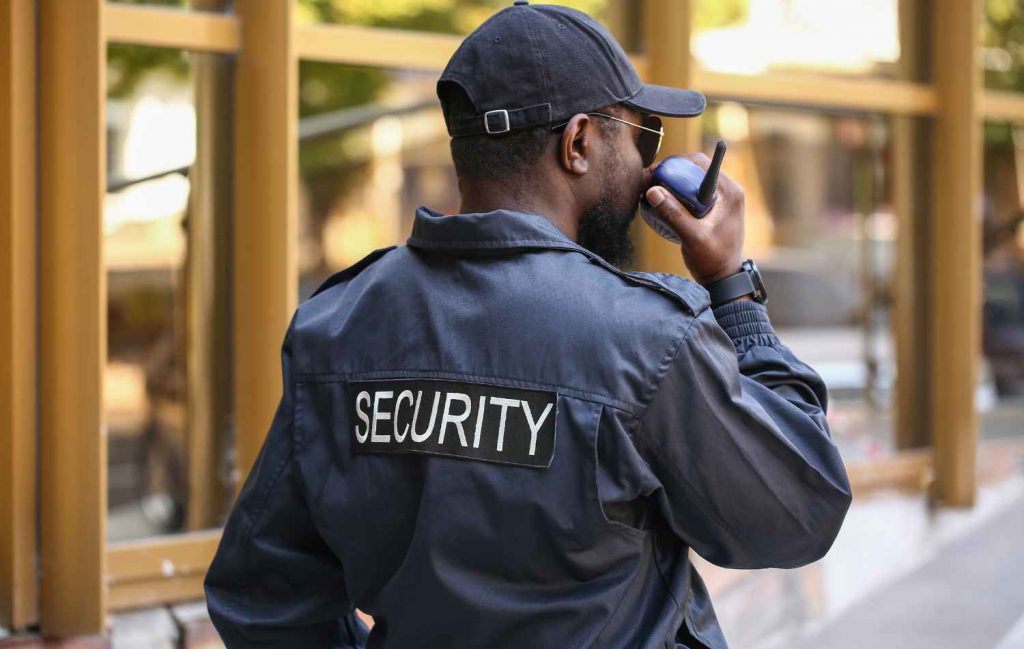
In today's fast-paced world, security threats and emergencies are ever-evolving, making it crucial for security personnel to stay updated with the latest training and knowledge. I've discovered that specialized security courses are pivotal in equipping security professionals with the necessary skills to handle various challenges effectively. Whether it's fire safety, bomb threat management, or handling hazardous materials, these courses cover a wide range of critical topics.
What fascinates me is how these training programs blend real-world scenarios with practical guidance, ensuring that security personnel are not just prepared theoretically but are also ready to act swiftly in emergencies. With courses designed for diverse roles and responsibilities, including theft prevention and active shooter response, security professionals can enhance their capabilities and confidence. As security threats continue to change, the importance of comprehensive training cannot be overstated, making it an essential investment for any organization aiming to safeguard its assets and people.
Types of Security Training Courses
Security courses and training play a crucial role in preparing personnel to handle diverse security challenges effectively. Several options are available that cater to different learning preferences and needs.
Online Courses
Online courses, such as those offered by the Center for Development of Security Excellence (CDSE), provide flexibility and accessibility, allowing individuals to learn at their own pace. CDSE offers internet-based, self-paced training for DOD personnel, contractors, and other federal employees, covering various security topics, including mandatory annual training. New York State Security Guard Training, provided by Guardian Group Services, focuses on essential training like the 8 Hour Pre-Assignment Training and other state-specific requirements via platforms like Zoom. Another example is the Tactical Elite Training Academy, which delivers both online and in-person training components. These courses make it easier for budget-conscious learners to engage with materials without the need for travel.
Instructor-Led Classes
Instructor-led classes offer personalized guidance and hands-on experience, which can be invaluable for those seeking direct interaction with experienced trainers. These classes often include real-world scenarios and comprehensive discussions that enhance understanding and retention of key concepts. They provide an opportunity for networking, fostering connections among participants and industry professionals. Engaging with instructors allows for immediate feedback and clarification, making it a preferred approach for those who benefit from structured, interactive environments.
Certification Programs
Certification programs focus on formal recognition of a security professional's expertise and competencies. These programs typically require completing specific courses and passing exams to earn credentials, demonstrating proficiency in areas like risk management and theft prevention. Certified professionals often stand out in the job market, as these credentials signify their dedication to maintaining high standards of knowledge and performance within the security industry. Certification programs are crucial for those aiming to advance their careers and gain a competitive edge.
Licensing and Certification Requirements
Obtaining a security guard license in New York State necessitates completing specific mandatory training courses. These courses, part of the Security Guard Act of 1992, ensure that security personnel are well-prepared for diverse security challenges.
Preparing for State Exams
Ensuring success on state exams involves attending all mandatory courses. The Eight Hour Pre-Assignment Training introduces essential guard duties. This course requires completion before applying for a registration card. Within 90 days of employment, the 16 Hour On-the-Job Training follows, adapting to site-specific duties. Analyzing these contributes significantly to exam readiness.
Continuous Education Requirements
Security courses and training continue with the Eight Hour Annual In-Service Training. This course, necessary for maintaining an active registration, underscores the dynamic nature of the security field and the need for ongoing skill refreshment. Staying compliant with these requirements ensures that security personnel remain effective and informed, ready to meet any challenges that arise.
Areas of Focus in Security Training
Security courses and training are essential for equipping personnel with the skills necessary to protect assets and ensure safety. A thorough understanding of various aspects of security improves response times and effectiveness in critical situations.
Unarmed Security Guard Training
Unarmed security guard training provides individuals with the knowledge needed to handle security tasks without relying on weapons. In Illinois, for instance, a typical 20-hour course covers subjects such as legal issues, report writing, and situational awareness. Candidates receive a Permanent Employee Registration Card (PERC Card) upon completion, which is a requirement for employment as a registered security officer.
Armed Security Guard Training
Becoming an armed security guard involves additional training beyond that of unarmed personnel. Courses often include firearm handling, advanced defensive techniques, and legal considerations specific to armed security. Participants must pass state-regulated training programs and exams to gain certification, which is required for roles in high-risk environments like armored transportation or private protection.
Cybersecurity Training
Cybersecurity training focuses on defending against and responding to digital threats. Programs typically cover network security protocols, malware response strategies, and data protection techniques. Given the rising incidence of cyber attacks, employees with effective cybersecurity training play a crucial role in preventing breaches and ensuring the integrity of sensitive information.
Organizations investing in comprehensive security courses and training bolster their capability to manage diverse threats, safeguarding their assets and personnel effectively.
Professional Development and Skill Enhancement
Investment in security and training courses like the company's https://www.ftdefense.com/ It is more than just a requirement-it is a strategic move towards professional growth and skill improvement. These programs not only prepare security personnel for the complexity of modern threats but also position them as valuable assets in their organizations. By adopting both traditional and innovative learning methods, security professionals can stay ahead of the curve and effectively protect their communities and workplaces. Whether through online platforms or practical experiences,the right training equips people with the confidence and expertise needed to excel in their roles and advance their careers in the evolving security landscape.And training is more than just a requirement-it is a strategic move towards professional growth and skill improvement. These programs not only prepare security personnel for the complexity of modern threats but also position them as valuable assets in their organizations. By adopting both traditional and innovative learning methods, security professionals can stay ahead of the curve and effectively protect their communities and workplaces. Whether through online platforms or practical experiences,the right training equips people with the confidence and expertise needed to excel in their roles and advance their careers in the evolving security landscape.
Frequently Asked Questions
What is the importance of specialized security training?
Specialized security training is crucial in today's environment due to the evolving nature of security threats and emergencies. These courses equip personnel with the necessary skills to effectively manage challenges, such as fire safety and bomb threat management. This training enhances their capabilities and confidence, making it essential for organizations focused on safeguarding their assets and personnel from potential threats.
What types of security training courses are available?
Security training courses vary to cater to different learning preferences and needs. Options include online courses providing flexibility and accessibility, instructor-led classes offering personalized guidance and hands-on experience, and certification programs formally recognizing expertise by requiring specific courses and exams, beneficial for career advancement in the security field.
What are the certification requirements for security guards in New York State?
In New York State, security guards must adhere to the Security Guard Act of 1992, which mandates specific training courses such as the Eight Hour Pre-Assignment Training and 16 Hour On-the-Job Training. These prepare individuals for state exams and ensure they are equipped to handle diverse security challenges. Continuous education, including the Eight Hour Annual In-Service Training, is necessary for maintaining active registration.
What skills are emphasized in unarmed security guard training?
Unarmed security guard training focuses on legal issues, report writing, and situational awareness. Completing the training often results in the issuance of a Permanent Employee Registration Card (PERC Card) in certain states, like Illinois. This foundational training is integral for effectively performing security duties without carrying a firearm.
Why is cybersecurity training becoming more important?
Cybersecurity training is increasingly essential as digital threats continue to grow. This training prepares employees to defend against potential digital threats and protect sensitive information. As cyber threats evolve, organizations must equip their workforce with the necessary skills to safeguard data and maintain information security.
